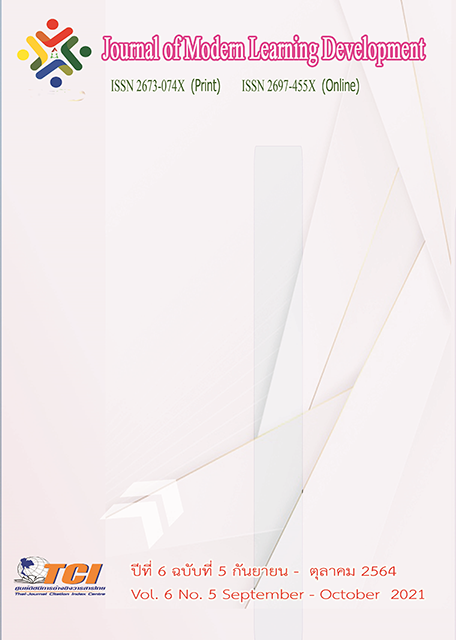The Analysis of Ethics in the UpaṭṭhᾹka Sutta
Main Article Content
Abstract
This academic article presents ethics in the Upaṭṭhāka Sutta. The objective is to analyze the concept of Upaṭṭhāka (taking care) in the sutta as the ethical principles to obtain the value of Upaṭṭhāka of the Buddha, which can be analyzed into five elements: 1) honesty, 2) modesty, 3) intelligence in handling, 4) truth and 5) patience. The duty of Upaṭṭhāka of the Buddha is to facilitate in various fields in taking cate. The result of this is to have the convenience in religious performances and have the willpower to create benefits for Buddhism, good practice and the future benefit that is the spiritual benefit obtained by having faith in goodness, gorgeous practice, self-sacrifice and intelligence. The ultimate benefit means having a mind that is clean, pristine, happy, stable, untainted by greed, anger, delusion, and unshaken by the worldly conditions. This means attaining the highest level of freedom called ‘Nirvana’.
Article Details
References
พระราชเวที (สมพงษ์ พรหมวํโส ป.ธ.9). (2536). สัททวิเสสวิคหะ. กรุงเทพมหานคร: สำนักพิมพ์ประดิพัทธ์.
มหาวิทยาลัยมหาจุฬาลงกรณราชวิทยาลัย. (2539). พระไตรปิฎกฉบับภาษาไทย. กรุงเทพมหานคร: โรงพิมพ์มหาจุฬาลงกรณราชวิทยาลัย.
ราชบัณฑิตยสถาน. (2546). พจนานุกรมฉบับราชบัณฑิตยสถาน พ.ศ. 2542. กรุงเทพมหานคร: นานมีบุ๊คพลับบลิเคชั่น.


